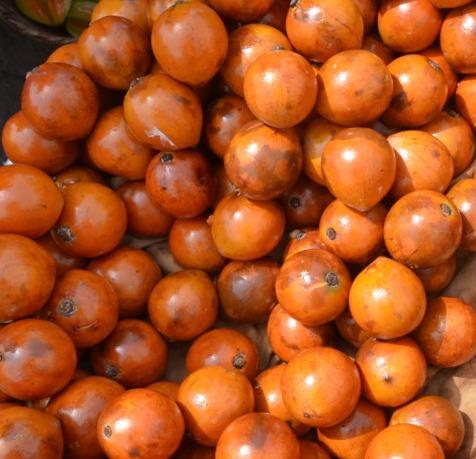Soursop is an evergreen fruit that is found in tropical areas like the Americas, the Caribbean and some parts of Africa. It has a white fleshy part, a spike-like skin and dark brown seeds. The botanical name for this fruit is Annona Muricata. Other names include: graviola, custard apple, ebo or apekan in Yoruba, fasadarur or tuwon biri in Hausa, and sawansop in Ibo.
Constituents
Soursop contains several beneficial antioxidants and minerals, such as calcium, phosphorus and iron. Soursop contains the B vitamins, as well as vitamins C, E, A (which occur in the form of beta-carotene). Phytonutrients found in the fruit include alkaloids, saponins, terpenoids, flavonoids, coumarins, lactones, anthraquinones, tannins, cardiac glycosides, phenols and phytosterols. It also contains an Acetogenin called Annonacin.

Pharmacological action/medicinal uses
Soursop has antibacterial, antiparasitic, antifungal and antiviral properties. Studies indicate that soursop may be a natural anti-infection treatment for root canals.
In many parts of Africa and India, traditional medicine practitioners use soursop fruit in treating Leishmaniasis, herpes infection, hypertension, fever and related conditions like diarrhoea, malaria, dysentery and seizures.
The seeds of soursop can be used as skin astringents to treat body wrinkles and ageing lines on the body.
Many studies have revealed the anti-inflammatory properties of this fruit can be useful in reducing pains and swelling caused by arthritis, rheumatism and insect bites; it functions as an analgesic.
Tryptophan present in the fruits and leaves is used by the body to produce niacin and serotonin, making it useful in aromatherapy; they relax the muscles and induce sleep.
The leaves of the soursop plant are said to have hypocholesterolemic properties. It is also believed that the soursop leaves kill cancer cells by blocking ATP production thus useful in breast and liver cancers.
Researches have proved that soursop helps in achieving weight loss.
Soursop can help to thin mucus secretions, relieve throat irritation and even act as a mild expectorant, soothing many associated symptoms.
Soursop is also known to have, antispasmodic, anti-diabetic, cardio tonic, diuretic, emetic, galactagogue, immunity boosting, laxative and liver toning activities.
Preparations
Soursop is often eaten raw due to its flavour and savoury taste.
It can be used as a smoothie or added to one; it can also be used in the making of soursop milkshakes, ice creams, in beverages and as juice.
The leaves and the bark, respectively, are most times boiled and taken orally. The leaves may be squeezed to bring out the liquid extract, which can be taken either orally or applied to the skin (infected area).
The seeds of soursop can be reduced to fine particles and used as skin astringents
Adverse effects
Some notable side-effects of soursop tea include nausea, vomiting, digestive disorders, hypotension, premature labour, fatigue, and some neurotoxic effects. However, most of these side l-effects occur as a result of allergies or excessive consumption of the tea,
It is not advisable to ingest soursop seed and bark as they can lead to or promote Parkinson’s disease.
It is not advisable for pregnant women to take soursop due to its content of toxins that might be harmful to the foetus.
Economic values and potentials
Soursop cost as much as ₦200-₦500 naira per fruit, depending on size and freshness. The supplements available in some health shops may cost an average of ₦1,000-₦2,000 per pack of 30 teabags, ₦1500-₦2000 per pack of leaf powder, ₦6000-₦8000 per pack of 100 capsules and ₦9,500 per bottle of bitters.
Opportunities abound in the cultivation and sale of fresh soursop fruits, leaves and bark and its use in the treatment of various health conditions as herbal medicines in various dosage forms.
Nigeria Natural Medicine Development Agency











generic pills buy medication without an rx
generic tadalafil united states: http://tadalafilonline20.com/ tadalafil pills